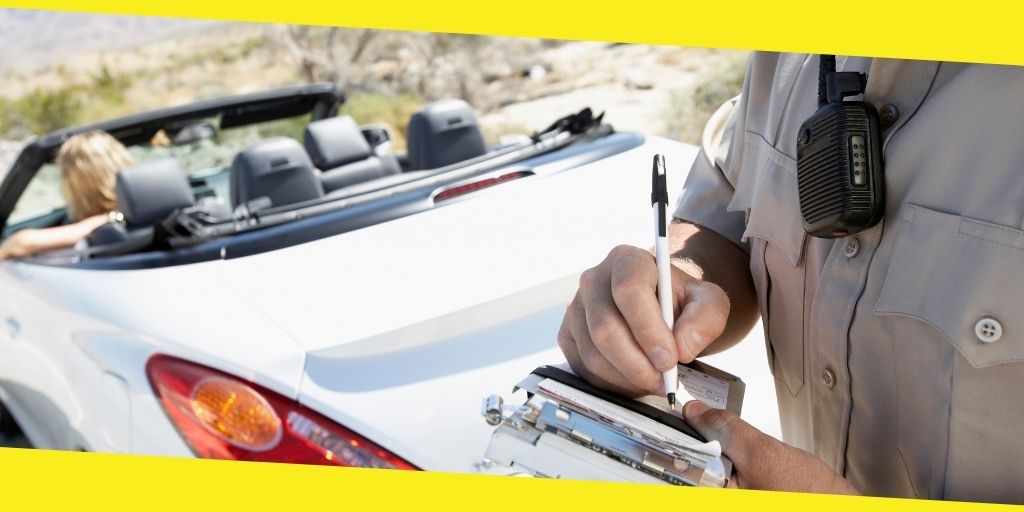What to Do When you Receive a Speeding Ticket

You are filled with dread when you see those blue lights flash behind you. Who wants to get a speeding ticket? People want to avoid it because if you are convicted, then a violation can have several consequences. It can have an impact on your driving record, potentially resulting in your license being suspended. It can also cost you money upfront because you will have to pay the speeding ticket, as well as court fees. In fact, it can even cost you money in the long run because your car insurance rates can increase by hundreds of dollars a year due to the ticket.
The good news is that it is quite possible for you to erase the speeding ticket altogether or reduce its impact. If you want to know about your options, some of the different scenarios are highlighted below:
-
The day you receive the ticket
When you are pulled over for a speeding ticket, you should ask the police officer about the method they have used for determining you were speeding and note it down. Don’t say anything because whatever you say can be used against you if the matter goes to court. Avoid arguing and be polite. The goal is to stay unremarkable because if the officer will not remember you, then they may not be able to recall the details of the incident in court.
Later on, you should note down everything about the incident, which includes the location, time of the day and anything that could have affected the circumstances, such as missing or obscured speed limit signs. Then, you can decide whether you wish to fight the ticket in court, pay the speeding ticket and accept the impact on your driving record and the increased insurance premiums, or negotiate a lesser penalty.
-
Deciding to pay the speeding ticket
Even though paying $50 for a speeding ticket doesn’t seem that bad, you have to remember that this is not the true cost of a speeding ticket. After you pay the initial fee of the ticket, your car insurance rates can also go up by hundreds of dollars in a year. Deciding to pay the speeding ticket is an acknowledgement of your guilt and if you do so, you should probably compare car insurance quotes in order to ensure that your company doesn’t increase them by a lot. You can also go over the policy to see what you have agreed upon beforehand.
-
Deciding to fight the ticket in court
If you plan on fighting the ticket, then you will have to go to court, where a prosecutor has to prove that the ticket was justified. Even if you believe it is unjustified, beating speeding violations is no easy task. You could get off the hook if the police officer doesn’t show up for the hearing, but you cannot depend on it. When you have asked for a hearing, you need to be prepared to answer questions before a judge.
Check the ticket to see whether a local, county or state officer issued it and do an online search for traffic procedures within that jurisdiction. Look up the motor vehicle code in your state and carefully go over the speed law you allegedly broke. New laws are introduced regularly, so you need to be prepared, especially when you plan to argue that you didn’t break any.
While you are preparing for court, you can choose to delay the hearing as this will give you more time for building your case. You can also collect evidence, like getting physical proof that you weren’t speeding. This could include GPS data from an app or dashcam video, or even photographic evidence of an obscured speed limit sign.
Do some research into the method used by the officer for clocking your speed. Identify its weaknesses and be ready to highlight them. Witnesses can also be called, including any passengers present in the car when the ticket was issued. Plan the questions you will ask the officer, which can be about their training with using speed-clocking equipment, or their memory.
If you think this is more than you can handle, there is always the option of hiring a traffic lawyer for assistance. These lawyers typically deal with DUIs and other serious cases, but some are also willing to handle speeding ticket cases. If your ticket is an expensive one or could result in the suspension of your license, hiring a lawyer might actually be worth it.
-
Deciding to negotiate a penalty
Making a deal with the court and prosecutor is referred to as mitigation. It can help the jurisdiction save money because they can avoid a hearing and it lowers your penalty for the speeding ticket. A negotiation can be requested at or before the hearing, but it is the decision of the court. You can check on their website or make a call. In some areas, a mitigation request has to be submitted in writing. Mitigation typically involves admitting to the offense and presenting information that can get the judge to grant you leniency.
Some of the outcomes include you taking a driving course rather than paying for the speeding ticket, paying for some or all of the ticket, but not having a ding on your driving record, reduction of the fine or getting extra time to pay the fine.
-
Other possible outcomes
There are some other possible outcomes of a speeding ticket. Depending on the state you are in, your first moving violation may be waived if you are ready to take a driving course. You could also get a deferral, where you will pay a fine and your ticket and after a period of time, your ticket will be dismissed if there aren’t any further offenses. No matter what you do, never ignore a speeding ticket because it will not go away and you can get in much bigger trouble. This will depend on the law in your state, as you may have to pay a bigger fine, get your license suspending, or even go to jail.
Recommended For You
Slip & Fall Accidents: What You Need to Prove
Most Inside
Most Inside offers high-quality recommendations and valuable updates to enhance all aspects of your life, providing premium guidance and enriching experiences.




